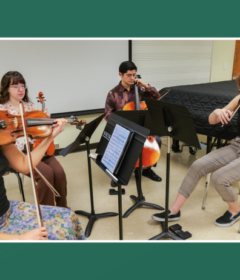Gillespie Museum Explores Hydrology During Virtual Armchair Geology Science Café
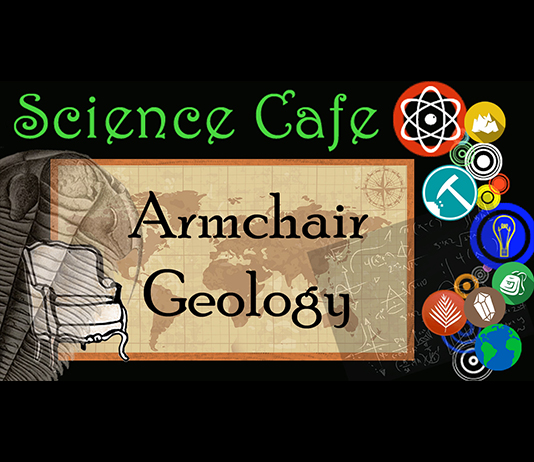
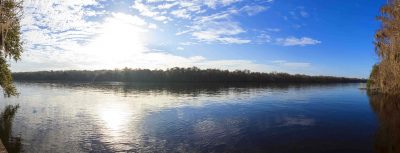
Water is a valuable resource and the essence of life on Earth. Conserving water helps keep aquifers, lakes, rivers, streams and springs pure and clean while protecting the environment.
Hydrologists study the movement of water above and below the Earth’s surface. They also determine the impact of people’s activities on the water supply by measuring the water flow and obtaining information on the water cycle, which includes evaporation, precipitation, and stream and groundwater flow.
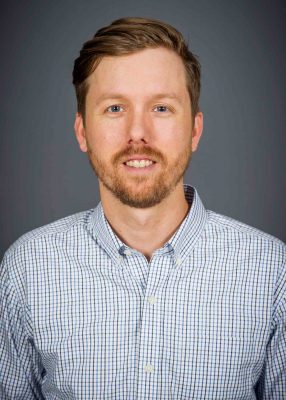
Geologists take the scientific process further by determining how groundwater interacts with the surrounding soil and rock.
Hydrologist J.P. Gannon, PhD, collegiate assistant professor of forest resources and environmental conservation at Virginia Tech, will be discussing “How do we Measure Tiny Mountain Streams and Why?” during a livestreamed event on Wednesday, March 31, 5-6 p.m. The free Science Café is the second presentation in the Gillespie Museum’s Armchair Geology series at Stetson University. Cultural credit will be provided.
Gannon will be explaining how hydrologists measure rivulets to determine the health and function of streamflow, and groundwater and stream water chemistry and temperature.
“I hope participants develop an appreciation for the importance of headwater streams and understand some of the interesting implications from measurements in my Science Café presentation,” said Gannon, who teaches environmental informatics in the Forest Resources and Environmental Conservation Department at Virginia Tech.
Gannon received his doctorate in catchment hydrology and Master of Science in hydrogeology from Virginia Tech and BS in physics from The College of New Jersey.
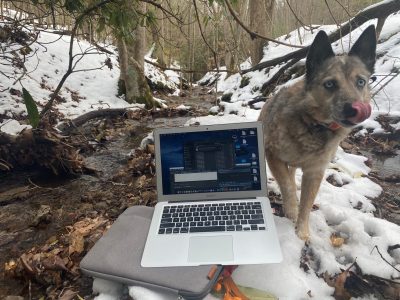
His research focuses are investigating drivers of streamflow generation across scales, whether in a 100-acre watershed in Virginia’s mountain ranges or large rivers throughout the United States. He also has examined mountain headwater streams in New Hampshire and North Carolina.
“I love that I have an opportunity to work with technology while tromping around in pretty places in the mountains,” said Gannon. “I feel right at home with writing code in front of a computer, as I do digging a hole to install a well on a steep slope in the woods.”
Over the past decade, Gillespie Museum Science Cafés have promoted scientific literacy by encouraging relaxed, open conversations among scientists and nonscientists of all ages and offering participants an opportunity to view current exhibits.
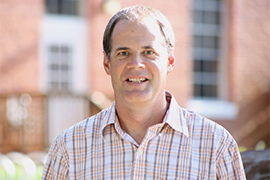
“A big benefit of this armchair geology speaker series is that it shows Stetson’s environmental science and studies undergraduate students and the general public what geologists do in the field and how it relates to solving important environmental issues,” said Ben Tanner, PhD, Environmental Science and Studies Department chair and associate professor at Stetson.
Additional speakers during the Science Café Series: Armchair Geology include:
- Wednesday, April 7, 5-6 p.m.: Cheryl Waters-Tormey, PhD, associate professor of geology at Western Carolina University, will be providing a presentation on tectonics and structural geology.
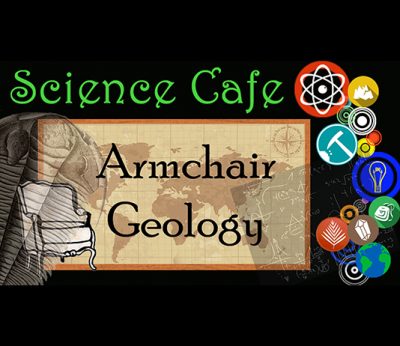
- Thursday, April 15, 5-6 p.m.: Ethan Fagan, geology senior at The University of Texas at San Antonio, will be speaking on metamorphic uplift.
Participants can register for the Science Café Series: Armchair Geology and receive the Zoom link and information after sending an email with Armchair Geology in the subject line to the Gillespie Museum: [email protected].
-Sandra Carr


